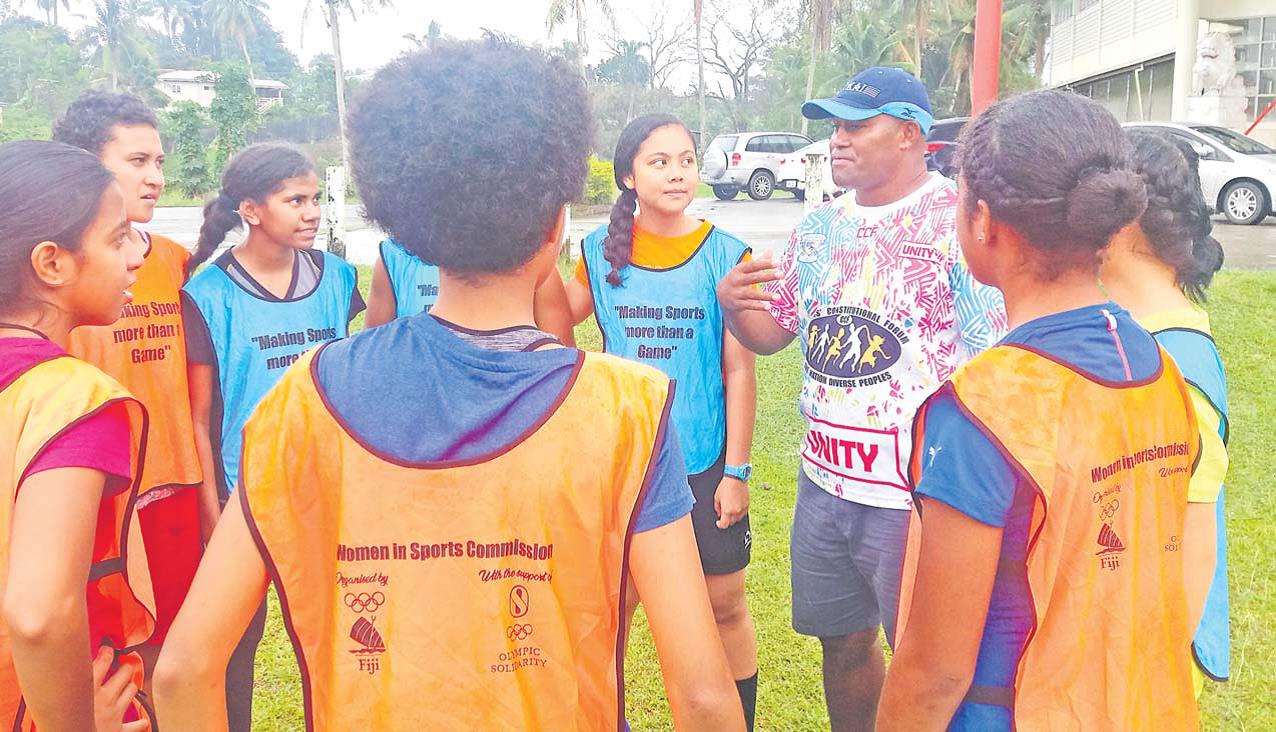While the world is currently working on addressing and recovering from the COVID-19 pandemic, women and girls must be both participants and leaders in this process, so their gains are not lost and a better future for all becomes a reality, says UN Women in a policy brief published earlier this month.
The impacts of COVID-19 are already being felt harder by women and girls in many areas of life due to gender inequalities.
This reality is also mirrored in sport.
Fiji Association of Sports and National Olympic Committee’s (FASANOC) Women in Sports Commission chairperson, Hamidan Bibi, said that as mandated by FASANOC’s Strategic Plan, the Women in Sport Commission was currently working with national federations to help improve governance aspects which included gender equality and diversity.
“However, many challenges remain – an important one being ensuring that the gender-related foundations are better understood and realised by individuals (both women and girls, men and boys), groups and sporting organisations,” Bibi said.
“It is pleasing to note that IOC and UN Women as well other multi-stakeholders are focusing their effort in this area as the need is great and reminders as such assist in keeping the gender agenda strong and active,” she said.
The Policy Brief by UN Women called “COVID 19, women, girls and sport: build back better” clearly points out that “existing gaps between women and men, girls and boys in both elite and grassroots sport may widen if governments, sport organisations, sponsors, civil society, athletes, media and UN agencies do not put women and girls at the centre and address their specific needs in response and recovery plans”.
Informed by the sports for generation equality framework, a multi-stakeholder coalition launched by UN Women and the International Olympic Committee (IOC) in March to advance gender equality, the document focuses on the impacts of the pandemic on women and girls in sport in five key areas: leadership, gender-based violence, economic opportunities, media participation and representation, and girls’ participation in sport.
The report also presents a set of recommended actions that members of the sports ecosystem can take both during the current crisis, and in the planning for recovery and beyond.
For sports organisations, the recommendations are the following:
· Continue to invest in women’s sport
· Include women in the creation and implementation of recovery plans · Conduct extensive consultations with women and men (athletes, coaches, referees, medical teams and other sports professionals) to better understand how they are being affected differently by the crisis and respond accordingly
· Engage male athletes, journalists, coaches and other male allies to champion women’s sports
· Use high profile people to raise awareness about the gender dimensions of the crisis
· Invest in and implement safeguarding policies
Both on and off the field of play, all stakeholders in the Olympic Movement have been working tirelessly towards better gender balance.
This commitment remained intact amid the current pandemic and its effects on all spheres of society. Sport is one of the most powerful platforms for promoting gender equality and empowering women and girls.
The number of women competing at the Olympic Games has significantly increased – from 34 per cent at Atlanta 1996 to an expected new record of 48.8 per cent at Tokyo 2020 and a commitment to reach full gender equality for the Olympic Games Paris 2024.
The IOC has also taken a prominent role in promoting gender equality within its leadership by bringing up its female membership to 37 per cent by the end of the year, going above the set target of having 30 per cent of decision- making positions held by women by 2020.
Last month, the organisation announced the composition of its commissions, with 47.7 per cent of positions held by women, a concrete outcome of the Olympic Agenda 2020 reforms.
FASANOC has long supported gender equity and through its Women in Sports Commission continues to take steps to ensure that it progresses towards better gender balance.
FASANOC has been led by two outstanding female sports administrators who include the Late Sophia Raddock who served from 1987 – 1996 and the current President, Makarita Lenoa, who was elected in 2019.
Lenoa, a former president of both the Fiji and Oceania Karate Associations, is also an executive board member of the International Karate Federation.
In addition fifty percent of the current FASANOC executive board are women.
FASANOC has six commissions of which three are chaired by females that include the Athlete’s Commission chaired by Hilda Vukikomoala, Sports Education Commission chaired by Lenoa and Women In Sports Commission chaired by Bibi.
In addition women drive FASANOC’s Athletes Communities-Engagement (ACE) program with female”Champions” making up 80 per cent of its volunteer force.
On the national federation front however, leadership continues to be male dominated with only 7 of
FASANOC’s 40 member federations led by women.
Bibi also commented that aspects such as leadership, genderbased violence, economic opportunities,
media participation and representation, and girls’ participation in sport, are ongoing partnership efforts for the Women in Sport Commission and were being incorporated in spite of, and keeping in mind, the COVID-19 situation in the local context.
The commission in partnership with OSEP (Oceania Sports Education Program) and Olympic solidarity is also inviting national federations to attend a modified MiSO (management in sports organisation) course, focusing on governance structures and planning modules in September.
Interested persons can register online on www.fasanoc.org.fj or email fasanoc@fasanoc.org.fj.



